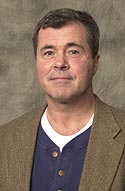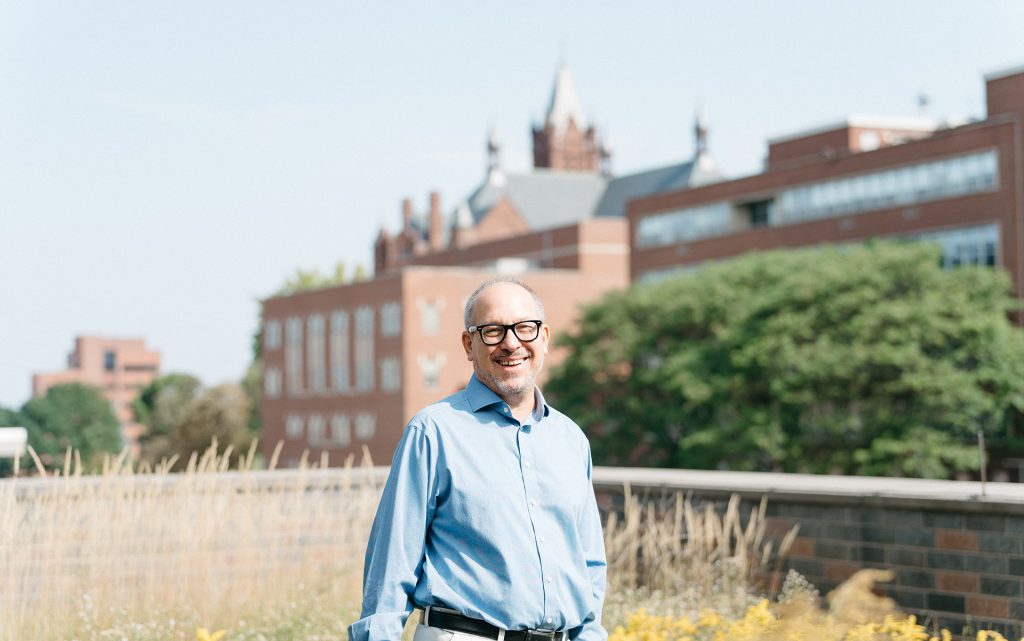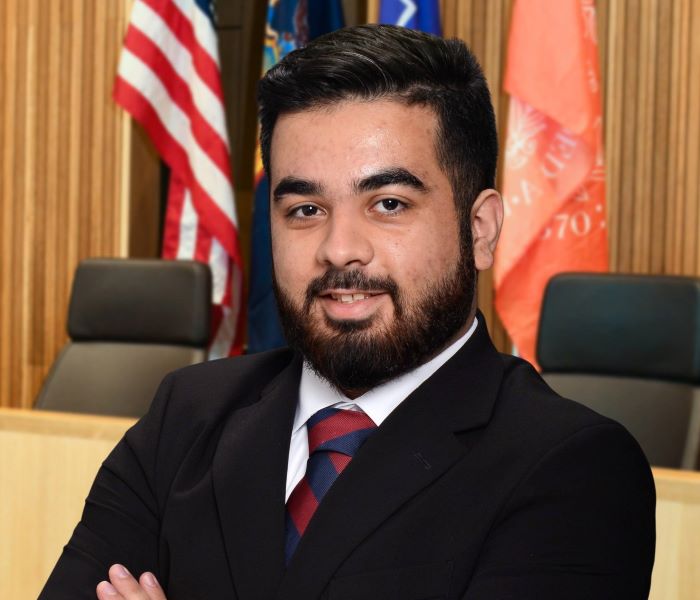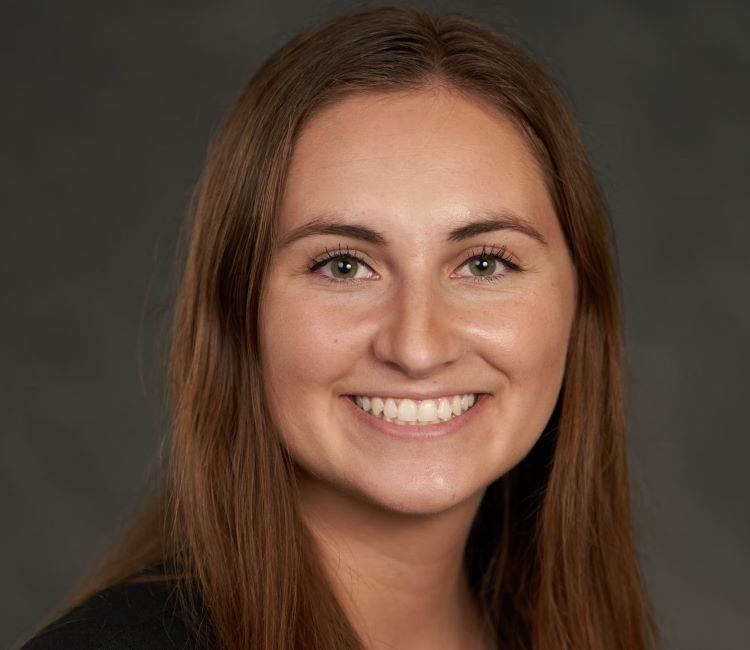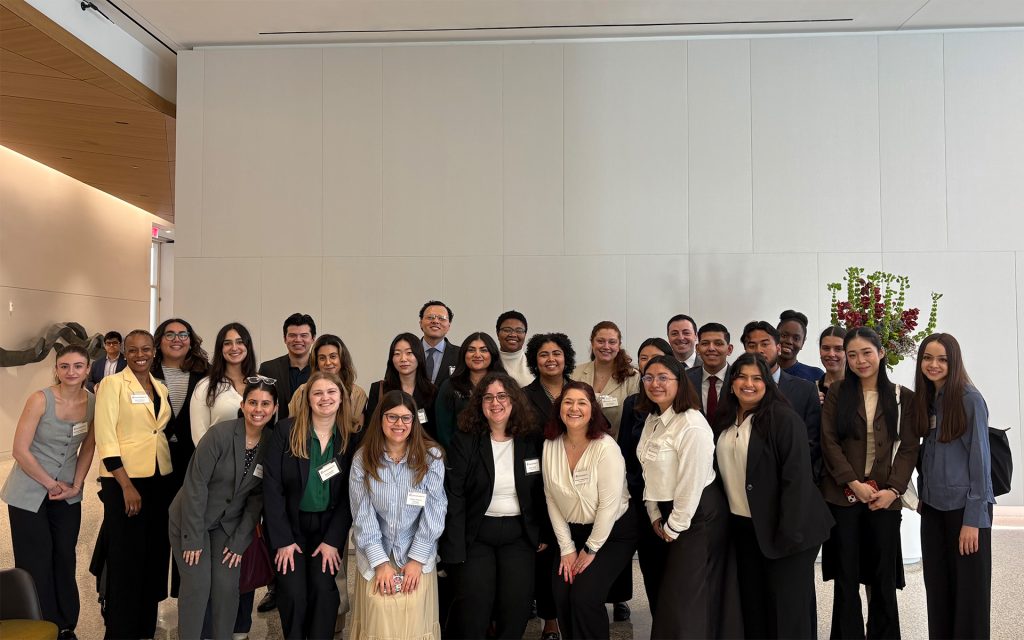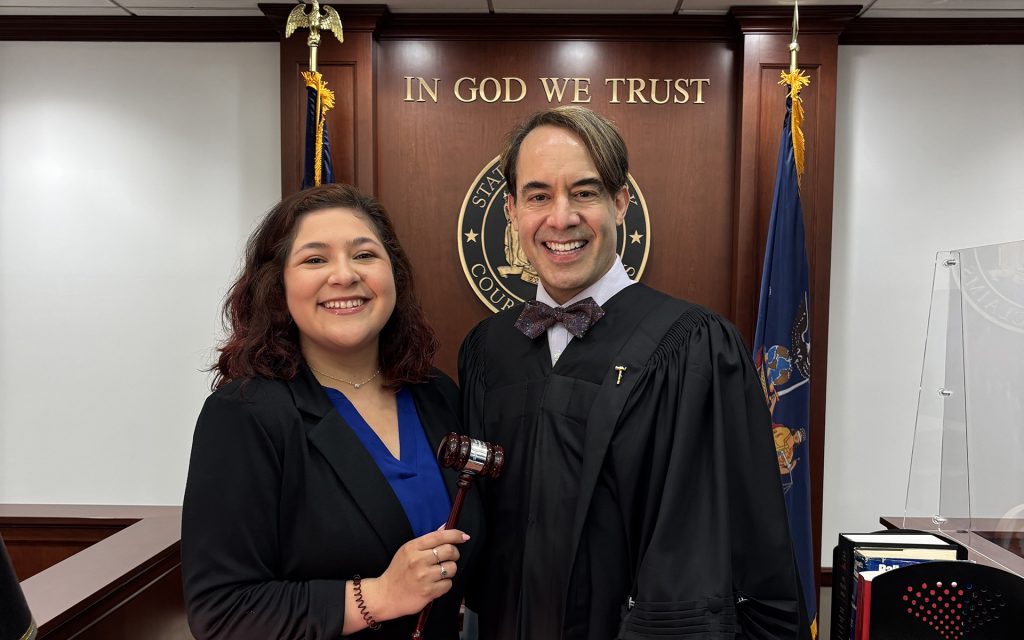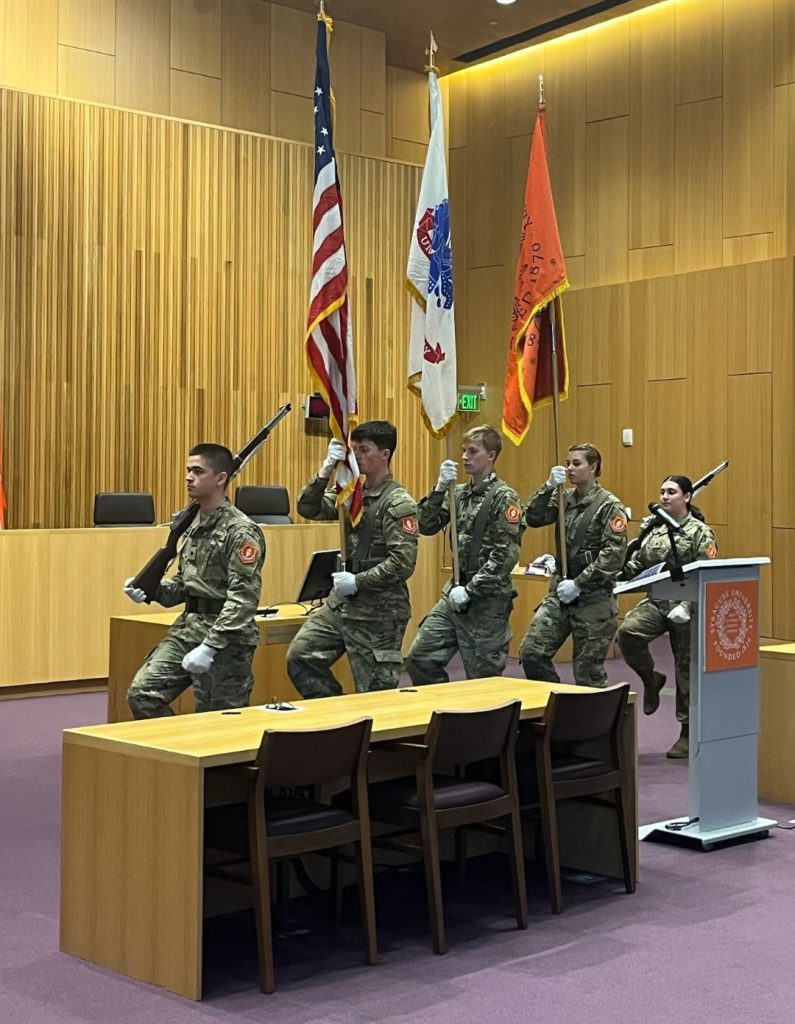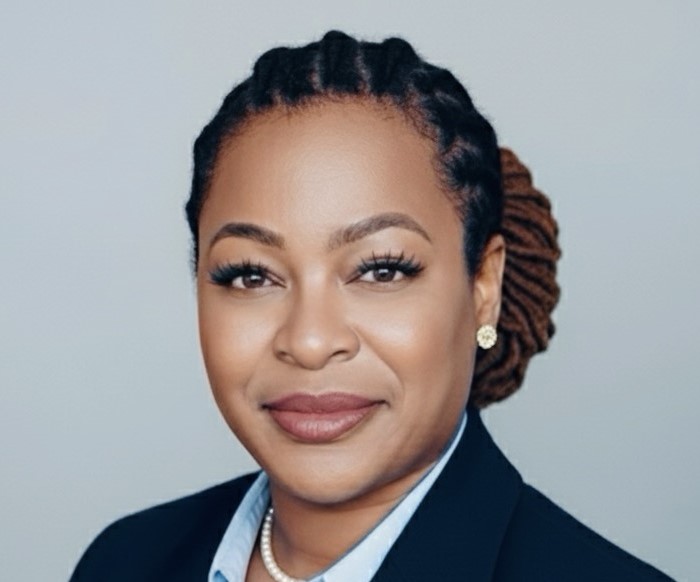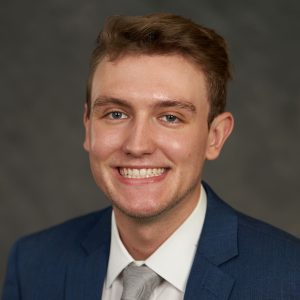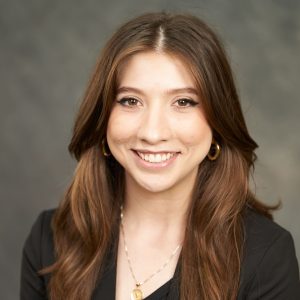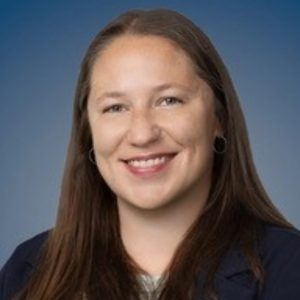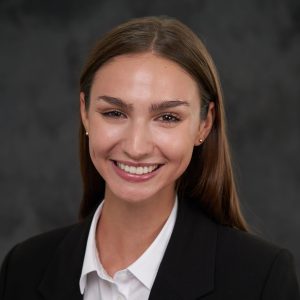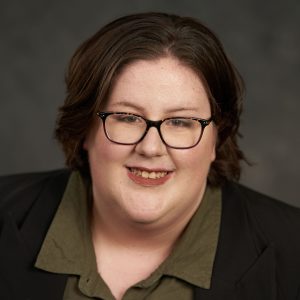Jill Nelsen L’27 grew up in California playing soccer and loving sports. She was recruited to California State-East Bay with a four-year athletic scholarship to play women’s varsity soccer, while also earning a bachelor’s degree in kinesiology. When she later decided to pursue law school, she hoped to stay connected to the world of sports and entertainment—but she never imagined that Syracuse University College of Law would open doors to opportunities like Miami Swim Week and New York Fashion Week.

During her 1L year, Nelsen joined the Entertainment & Sports Law Society (ESLS) often attending networking events with alumni thriving in this space. At one such event, she met Riley Christian L’16, now an entertainment and sports attorney with Artifex Athleta P.C., a firm he founded in 2022.
Nelsen and Christian had a lot in common, as she had been a collegiate soccer player and he a collegiate baseball player. At the time, Christian was rebranding his boutique law firm in New York City to focus more on the areas of sports and entertainment that dealt with navigating the NCAA’s new Name Image and Likeness (NIL) rules for college athletes and handling legal issues related to artificial intelligence in the entertainment and music business.
She reached out to Christian shortly thereafter, asking if he might need an intern, and he agreed to bring her onboard. At first, she helped navigate the logo development for the firm’s rebranding, later moving on to legal research for defamation cases, statute of limitations issues, trademark infringements, and intellectual property, while learning as much as she could about the ever-evolving NIL rules.

Piecing Together Sports, Fashion, and the Law
While all of this experience at her internship was very exciting, two highlights were attending Miami Swim Week and New York Fashion Week.
“Riley knew these big events would be good networking experiences for me, and he also knew I liked to talk to people and that would be a good way to spread the word about the rebranding of Artifex Athleta,” she explains.
The annual Miami Swim Week is the world’s largest swimwear and resort wear event that includes runway fashion shows, trade shows, and pop-up shops, as well as the chance to meet and network with all kinds of people connected to this area of fashion— from designers and buyers to athletes, agents, and the media.
“Yes, it was focused on swimwear, but there are so many aspects of the law attached to the fashion space, including trademarks, sponsorships, and negotiating and closing NIL and more,” she explains. “It was a fascinating experience to see it in action.”
She also attended New York Fashion Week, one of the “big four” fashion events in the world, showcasing what’s going to be “in” for the upcoming season. The biannual event includes exclusive runway shows by world-class designers that are attended by celebrities, influencers, fashion buyers, and the media. This, too, gave Nelsen an opportunity to network with a host of agents, attorneys, and other business leaders in the fashion space.
“The experience of not only attending these fabulous events but also having the chance to work with Riley helped me begin to make a name for myself as more than just an athlete,” she explains. “The younger version of me would be emotional to see all the things I’ve accomplished both in my course work, as well as internship opportunities. My take away from this entire experience is that I can do it, and there are people who truly believe in me and see my potential.”
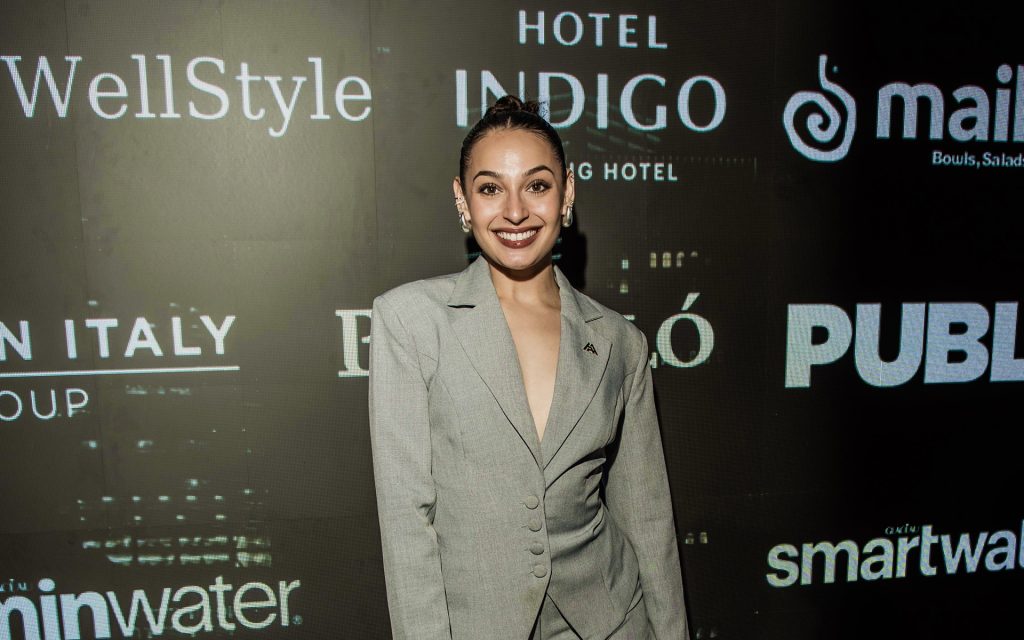
Uplifting Women Is the Ultimate Win
After completing her education at Syracuse Law, Nelsen’s dream is to one day work as general counsel for a National Basketball Association (NBA) or National Football League (NFL) team and negotiate from the team’s side with players and their agents. But her ultimate goal is to one day be a general manager or even owner of a Women’s National Basketball Association (WNBA) team.
“Sports, and now working in sports—has always been the dream,” she explains, noting that her older sister has been a role model “moving mountains” as director of services and retention for the NBA’s Los Angeles Lakers.
“And I’ve also learned a lot about creating space for people like me, particularly as a first-generation Latina woman. I’ve been told I’m too much, too blunt, too Californian, but I’ve also been told ‘don’t dim your light to fit into a box that’s been predefined for you.’ I am proud to be a Syracuse Law student with the opportunity to contribute to uplifting women in the sports and entertainment business and also within the legal field. That is a real win for me.”

